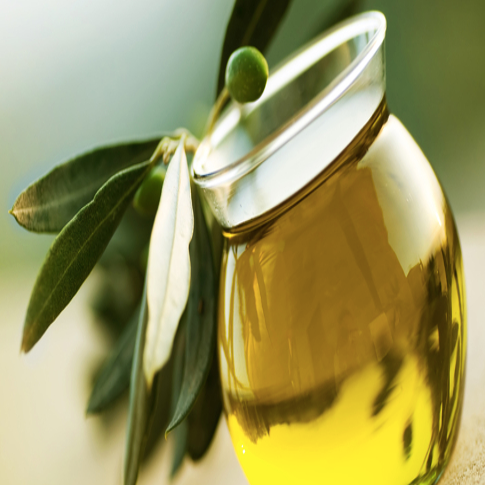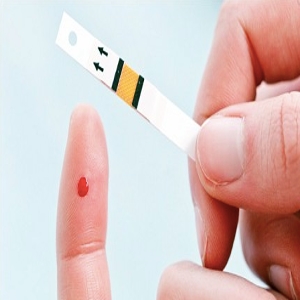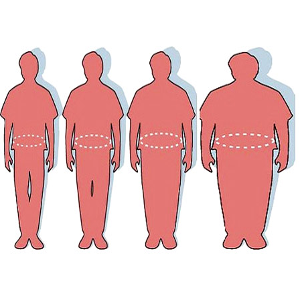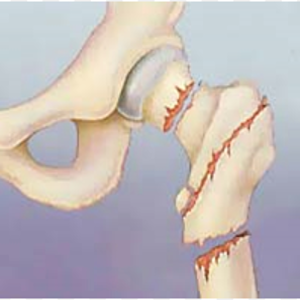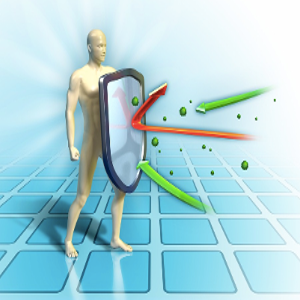OLIVE OIL AND CANCER
It is now proven that there is a relationship between diet and the development of cancers. The types of cancers closely associated with diet are colon-rectal, prostate and breast cancer.
A number of research studies have documented that olive oil reduces the risk of breast cancer. Eating a healthy diet with olive oil as the main source of fat could considerably lower cancer incidence. The reason is that the cell mutations caused by cancer are partly due to toxins which, when consumed through the diet, attack DNA. On passing through the liver, these toxins produce free radicals that then attack DNA. To combat such free radicals, the body needs vitamins and antioxidants like those contained in olive oil.
It has also been reported that an olive-oil-rich diet is associated with reduced risk of bowel cancer. The protective effect of olive oil is irrespective of the amount of fruit and vegetables eaten in the diet.
Recent studies have demonstrated that olive oil provides protection against cancer of the colon. Lately, research has been looking into the metabolic implications of fats, more specifically the protective role of olive oil in chronic liver disease and in the disorder of the intestines known as Crohn’s disease. Results point to beneficial effects of olive oil on pre-cancerous lesions. After analysing three types of diet, research scientists arrived at various conclusions. The olive oil diet reduced the number of cancerous lesions; the number of tumours that developed was clearly and significantly low; and the tumours were less aggressive and had a better prognosis.
This beneficial effect could be related to oleic acid, the predominant monounsaturated fatty acid in olive oil. It has been observed that this fatty acid lowers the production of prostaglandins derived from arachidonic acid, which in turn plays a significant part in the production and development of tumours.
Some very promising, current research is centred on the protection provided by olive oil against child leukaemia and various cancers, such as oesophageal squamous cell cancer.
Much has still to be discovered about how olive oil affects cancer and concrete data are still lacking on the mechanisms behind the beneficial role it plays in the prevention or inhibition of the growth of different types of cancer. However, according to the information available at present, olive oil could act simultaneously during the different stages involved in the process of cancer formation.
Source: International Olive Council
Olive Oil and Heart Diseases
Heart diseases are the top cause of death in the industrialised world. Studies have documented that blockage of arteries is closely linked to eating habits and lifestyle. The progression of arteriosclerosis depends on many factors: the most important ones are high blood cholesterol, high blood pressure, diabetes and cigarette smoking.
It has been demonstrated that olive oil has an effect in preventing the formation of blood clots and platelet aggregation. It has been observed that by avoiding excessive blood coagulation, olive-oil-rich diets can attenuate the effect of fatty foods in encouraging blood clot formation, thus contributing to the low incidence of heart failure in countries where olive oil is the principal fat consumed.
Olive oil lowers the levels of total blood cholesterol, LDL-cholesterol and triglycerides. At the same time it does not alter the levels of HDL-cholesterol (and may even raise them), which plays a protective role and prevents the formation of fatty patches, thus stimulating the elimination of the low-density lipoproteins.
The beneficial effect of olive oil consumption with regard to cardiovascular disease has been demonstrated in primary prevention, where it reduces the risk of developing the disease, and in secondary prevention, where it prevents recurrence after a first coronary event.
At present, research is revealing the effectiveness of the Mediterranean diet in the prevention of secondary coronary events and the positive influence of olive oil on the depression associated with such events and on mood. These findings are very important in view of the high incidence of depression in the modern-day world and the great risk it poses in recurrent heart disease.
Source: International Olive Council
Olive oil and blood pressure
Various research studies have reported a close relationship between diet and blood pressure. Certain foods can raise blood pressure besides having an effect on body weight.
It has not yet been clearly established what elements of the Mediterranean diet are responsible for its effects in reducing blood pressure. It has been demonstrated, however, that the addition of olive oil to a diet that is not changed in any other way has a clear lowering effect on blood pressure, which seems to be specific to this oil. Regular consumption of olive oil decreases both systolic (maximum) and diastolic (minimum) blood pressure.
There is recent evidence that when olive oil is consumed the daily dose of drugs needed to control blood pressure in hypertensive patients can be decreased, possibly because of a reduction in nitric acid caused by polyphenols.
Source: International Olive Council
OLIVE OIL AND DIABETES
Diabete is one of the leading health problems in the developed countries, and the sixth cause of death. It is one of the major metabolic diseases and it is potentially very serious because it can cause many complications that seriously damage health, such as cardiovascular diseases, kidney failure, blindness, peripheral circulation disorders, etc.
There are two types of diabetes: type-I or insulin-dependent diabetes, found in children and teenagers, and type-II or non-insulin-dependent diabetes, which appears in adulthood, generally from the age of 40 onwards. Insulin is required to control the first type while the second, more frequent type is generally associated with obesity and does not call for insulin treatment. Nowadays a person is considered to be a diabetic when, two hours after an oral overdose of glucose, he or she has a fasting blood sugar level of more than 126 mg/dl, or of more than 200 mg/dl in non-fasting conditions.
Glucose intolerance is a situation where a person has high blood sugar levels (between 110 and 125 mg/dl) without any clear signs of disease, but with a major risk of suffering from diabetes in the future.
An olive-oil-rich diet is not only a good alternative in the treatment of diabetes; it may also help to prevent or delay the onset of the disease. How it does so is by preventing insulin resistance and its possible pernicious implications by raising HDL-cholesterol, lowering triglycerides, and ensuring better blood sugar level control and lower blood pressure. It has been demonstrated that a diet that is rich in olive oil, low in saturated fats, moderately rich in carbohydrates and soluble fibre from fruit, vegetables, pulses and grains is the most effective approach for diabetics. Besides lowering the “bad” low-density lipoproteins, this type of diet improves blood sugar control and enhances insulin sensitivity.
These benefits have been documented in child and adult diabetes.
Source: International Olive Council
Olive Oil And Obesity
Obesity is a major health issue in the West because people eat large amounts and get little physical exercise. Nowadays, in cities especially, people are adopting a sedentary, stressful life. Over half the population of some industrialised countries is overweight, leading to increased risk of high blood pressure, diabetes, high cholesterol and triglycerides, all factors that increase the risk of cardiovascular diseases.
Olive oil is a nutrient of great biological value. Like all other fats and oils it is high in calories (9 Kcal per gram), which could make one think that it would contribute to obesity. However, experience shows that there is less obesity amongst the Mediterranean peoples, who consume the most olive oil.
It has been demonstrated that an olive-oil-rich diet leads to greater and longer-lasting weight loss than a low-fat diet. It is accepted better because it tastes good and it is a stimulus to eat vegetables.
Source: International Olive Council
Olive Oil And Osteoporosis and Aging
Olive oil is rich in various antioxidants (vitamin E, polyphenols, …) which play a positive, biological role in eliminating free radicals, the molecules involved in some chronic diseases and ageing, and in extending life expectancy, which has been demonstrated in several epidemiological studies. Many ageing-related diseases are influenced by diet, in particular osteoporosis and deteriorated cognitive function.
Olive oil appears to have a favourable effect on bone calcification, and bone mineralisation is better the more olive oil is consumed. It helps calcium absorption, thereby playing an important part during the period of growth and in the prevention of osteoporosis.
Olive-oil-rich diets may prevent memory loss in healthy elderly people. Less possibility of suffering age-related cognitive decline has been observed in a study conducted on elderly people administered diets containing a large amount of monounsaturated fats, the case of olive oil particularly.
Exactly how large quantities of these fats prevent cognitive decline is not known. However, this effect is believed to occur because the monounsaturated fatty acids may help to maintain the structure of the brain cell membranes since the demand for these acids appears to grow during ageing.
The same study observed that the quantity of olive oil consumed was inversely proportional to age-related cognitive decline and memory loss, dementia and Alzheimer’s disease.
Olive Oil And The Immune System
It has also been demonstrated that olive oil plays an important role in the immune system.
It has been documented that olive oil intake bolsters the immune system against external attacks from microorganisms, bacteria or viruses.
It has been known for some time that mineral and vitamin deficiencies can have an adverse effect on the immune system.
Recent research has concluded that the fatty acids in the make-up of olive oil are good allies in lowering important immunological parameters such as the proliferation of lymphocytes induced by specific mitogens of both B- and T-cells.
These fatty acids have been reported to play an important part in various immune functions. They are involved in regulating inflammatory processes and they may be effective in the treatment of some autoimmune diseases and in the regulation of the immune system in general.
Source: International Olive Council
Olive Oil And Depression
According to Spanish researchers from the University of Navarra and Las Palmas de Gran Canaria, a diet rich in olive oil can protect from mental illness.
Researchers recently discovered that a higher intake of olive oil and polyunsaturated fats found in fatty fish and vegetable oils was associated with a lower risk of depression. The findings suggested that cardiovascular disease and depression may share some common mechanisms related to one’s diet.
Olive oil and skin
In human beings ageing leads to gradual structural and functional skin damage.
Skin tissue goes through a number of changes. Some of the chief ones are that the inner and outer layers of the skin (dermis and epidermis) grow thinner, elasticity is lost, the area joining the dermis to the epidermis becomes less cushioned, fibrosis occurs with the accumulation of collagen and the tissue is less able to fight against and repair damage.
External factors, such as the sun’s rays, speed up ageing by generating free radicals. Though cells are equipped with mechanisms that neutralise their action, it is possible to reduce cell damage by using inhibitors that lower the risk. One such natural inhibitor is olive oil, whose lipid profile is very similar to that of human skin.
On top of polyphenols, olive oil has a large proportion of vitamins A, D and K, as well as vitamin E, the main source of protection against the free radicals that produce cell oxidation. This makes it a good aid in specific therapies to treat skin disorders such as acne, psoriasis and seborrheic eczemas.
It has also been suggested that because of its pronounced antioxidant effect, olive oil could play a choice part in the prevention of continuous oxidation, one of the processes that influences the development of certain types of skin cancer. Vitamin E studies have begun, but these kinds of observations take a long time, which means that conclusive data are not yet available. However, the theory is that oleic acid is believed to play a major part in counteracting continuous oxidation.
Source: International Olive Council

